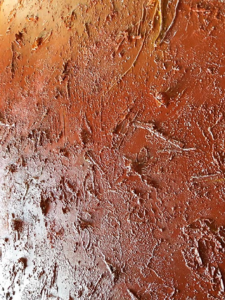
Arquivo para October 23rd, 2020
What makes love loved
Hannah Arendt sought in Augustine of Hippo for her answers to Love, brought great contributions in the philosophical field to the theme, far beyond the classic division of the Greeks: agape, eros and filia; but as the contemporary philosopher Julia Kristeva observed, she went no further than the philosopher Augustine, for there is also the theologian.
brought great contributions in the philosophical field to the theme, far beyond the classic division of the Greeks: agape, eros and filia; but as the contemporary philosopher Julia Kristeva observed, she went no further than the philosopher Augustine, for there is also the theologian.
In addition to the intelligent division of her doctoral thesis: “Love in Saint Augustine”, Arendt herself emphasized the philosophical character of the work of the Bishop of Hipona, by emphasizing: “he never completely lost the impulse of philosophical questioning” (Arendt, 1996), his bases of Cicero, Plato and Plotinus are noticeable in his work.
Arendt’s choice to divide his dissertation into three parts is due to a willingness to do justice to Augustinian thoughts and theories that run in parallel. So each part “will serve to show three conceptual contexts in which the problem of love plays a decisive role.”
She also realizes the importance of Amor Caritas, but as she sees it is not theological, but only within human possibilities, Julia Kristeva when talking about Love goes further by stating: “love is the time and space in which ´I´ give myself the right to be extraordinary“, while Arendt is clear that there is a difference between Caritas and Cupiditas, who loves the world, the things of the world.
But the question of Augustine that must also be answered by Christians is what “do I love when I love my God?” (Confessions X, 7, 11 apud Arendt p. 25), the fifth essence of my interior, it is true as Augustine thought that I find in me what connects me to eternity, but there is beyond the fifth essence or Other outside, not just God , but that Other that passes by me, the one whose identity is hidden in the human envelope of the Other that has God in him too.
What I love when I love God, is thus extended to Love humanity, concrete in each Other that I relate to, and is beyond the fifth essence of my “I”.
So Caritas is the extraordinary in me, both Arendt, Kristeva and Augustine himself are right in part, but the God I love is now also present in the Other, which is beyond my mirror and beyond my inner essence.
Perhaps the biggest trap made for Jesus by the Pharisees is in the question, after Jesus had silenced the Sadducees, it was in the question (Mt 22,36) “Master, what is the greatest commandment of the Law?”, And Jesus will answer (Mt 22, 37-39): “Jesus replied:“ ‘You shall love the Lord your God with all your heart, with all your soul, with all your understanding!’ That is the greatest and the first commandment. The second is similar to this: ‘You will love your neighbor as yourself’ ”, and concludes that this is the synthesis of the entire Law and of the prophets.
Hannah Arendt quotes this passage, but the sequence is clear you will love with all courage and soul, theological aspects and then with understanding, the philosophical.
However, the updated question is this of Augustine: “What do I love when I say that I love God?” and if the answer is also “The neighbor as yourself”, that is, with its inner essence directed to the Other, it means that I cannot say that I really love Love, which comes from God, if it is not the Love caritas.
Arendt, Hannah. (1996) Love and Saint Augustine. Chicago: University of Chicago Press.
Figure: Textures and acrylic on canvas. January, 2018. Eva-sas Gallery.

